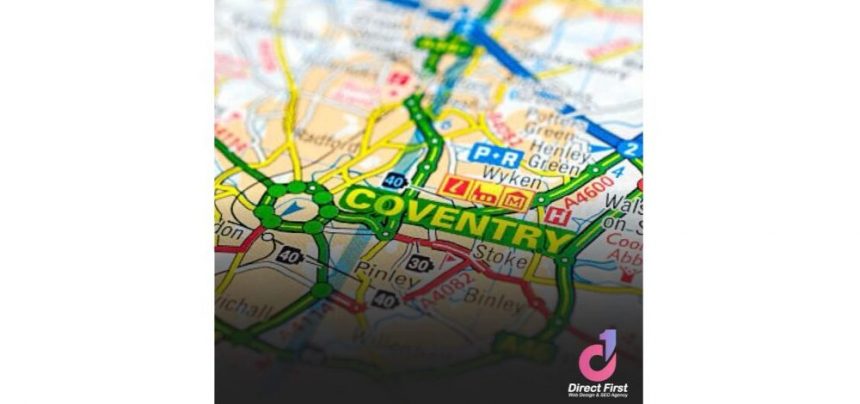In today’s digital-first world, your website is often the first impression customers will have of your business. It’s no longer enough to just have a website—how it looks, functions, and performs can significantly impact your success. That’s why web design in Coventry (or anywhere, really) plays a crucial role in shaping user experience (UX) and search engine optimization (SEO).
In this blog, we’ll dive into how a well-crafted web design in Coventry can enhance both user experience and SEO, ultimately helping your business attract more visitors, keep them engaged, and improve your search rankings.
1. Why Web Design Matters for User Experience
User experience is all about how users interact with your website and how easy it is for them to find what they need. A positive UX leads to satisfied visitors who are more likely to stay on your site, engage with your content, and, ultimately, convert into customers.
Aesthetic Appeal
The design of your website can significantly impact first impressions. According to a 2023 study, 94% of users will leave a website if the design is outdated or difficult to navigate. That’s a lot of potential customers lost. A modern, aesthetically pleasing design helps convey trustworthiness and professionalism.
Good design isn’t just about looks, though—it’s about how those looks contribute to ease of use. A website with a cluttered design can overwhelm users, while a clean, well-organized layout makes it easier for users to find what they’re looking for.
Mobile Responsiveness
With more than 50% of all web traffic coming from mobile devices in 2023, mobile responsiveness is a must for any business. If your site isn’t mobile-friendly, users will have a frustrating experience, which can drive them away. A responsive design automatically adjusts to different screen sizes, ensuring that your website looks great and functions well on all devices, from smartphones to desktops.
Fast Loading Times
A website’s speed is a critical part of UX. 53% of users will leave a website if it takes more than 3 seconds to load. Slow loading times can frustrate users and lead to high bounce rates. A web design agency in Coventry should prioritize optimized images, clean code, and fast-loading pages to ensure users have a smooth, frustration-free experience.
Intuitive Navigation
When users visit your site, they should be able to find what they need without much effort. Intuitive navigation is key. A good web design ensures that menus, buttons, and links are easy to find and use. If visitors can’t figure out how to navigate your site, they’re likely to leave. A clear and simple navigation structure keeps users engaged and makes their visit more enjoyable.
2. Why Web Design Matters for SEO
Search engine optimization (SEO) is the practice of improving your website’s visibility in search engine results pages (SERPs) like Google. While many people think SEO is all about keywords and backlinks, web design plays a crucial role in the overall SEO strategy. A well-designed website is easier for search engines to crawl, index, and rank, which can result in better organic traffic.
Mobile-First Design
As mentioned earlier, mobile traffic now accounts for the majority of web visits. Google, the world’s leading search engine, has adopted a mobile-first indexing approach, meaning it primarily uses the mobile version of a site for ranking and indexing. If your site isn’t optimized for mobile, it can negatively affect your SEO.
A web design agency in Coventry should focus on creating mobile-first designs that ensure your website functions perfectly across all devices, which can directly boost your rankings on Google.
Optimized Site Structure
Search engines like Google crawl websites to understand their structure and content. A website with a clear, logical structure—such as well-organized categories, clean URLs, and a consistent hierarchy—makes it easier for search engines to crawl and index your pages. This is especially important for SEO because a disorganized or complicated structure can hinder search engine crawlers, which could hurt your rankings.
Having a clean, easy-to-follow site layout with internal linking (e.g., linking related articles or pages) helps search engines understand which pages are important and how they’re connected, which can improve SEO.
Faster Load Times
As we mentioned earlier, site speed is a ranking factor for Google. If your website takes too long to load, it not only affects your user experience but also your SEO rankings. Websites that load faster are given priority in search rankings, so optimizing images, using a good content delivery network (CDN), and minimizing code bloat can improve both UX and SEO.
3. How Good Web Design in Coventry Can Benefit Both UX and SEO
The beauty of web design is that it has the power to enhance both user experience and SEO simultaneously. Here’s how a well-crafted web design in Coventry can achieve both goals:
Clean, User-Friendly Layout
A clear layout makes your website easy to navigate, which leads to better user engagement. When users find what they need quickly, they’re more likely to stay on your site, reducing your bounce rate (the percentage of visitors who leave after viewing only one page). A lower bounce rate is a strong signal to Google that your site is relevant and useful, which can help improve your SEO rankings.
Optimized Content
Good web design also integrates well with content creation. If your site has clear typography, properly sized images, and well-structured content (such as heading tags and short paragraphs), it will be easier for both users and search engines to digest the information. Search engines love websites with good content and clear organization because it signals quality and relevance.
Effective Calls to Action (CTAs)
Designing a website with prominent, easy-to-find calls to action (CTAs) improves UX by guiding visitors toward the next step, whether that’s making a purchase, subscribing to a newsletter, or contacting you. Effective CTAs can help drive conversions, which is ultimately the goal of any business website.
But there’s also an SEO benefit. Websites with a clear CTA structure and user-focused design are often more successful at keeping users engaged, reducing bounce rates, and improving the chances of conversion—all factors that can positively influence SEO.
4. The Role of Local SEO in Coventry Web Design
For businesses in Coventry, local SEO is a key consideration. Local SEO refers to the process of optimizing your website so that it ranks higher for searches within your geographic area.
Good web design can enhance local SEO in several ways:
- Mobile optimization: As mentioned earlier, mobile-friendliness is critical for SEO. But for local businesses, it’s even more important because mobile searches often have local intent, such as “web design agency near me.”
- Google My Business Integration: A well-designed website can integrate seamlessly with Google My Business, making it easier for users to find your business’s location, contact details, and hours of operation directly from the search results.
- Local keywords and content: A good web design agency in Coventry will ensure your site is optimized for local searches by including location-based keywords and content that speaks to the local community.
5. Choosing the Right Web Design Agency in Coventry for UX and SEO
When looking for a web design agency in Coventry that can improve both UX and SEO, you want to choose an agency that understands the importance of both. Ideally, the agency should offer expertise in not only web design but also digital marketing, SEO, and user experience.
Look for an agency that:
- Has experience working with local businesses in Coventry.
- Offers responsive, mobile-first web design.
- Focuses on fast, SEO-friendly websites.
- Prioritizes user experience in all aspects of their design.
Conclusion
In today’s competitive digital landscape, your website needs to do more than just look good. It has to provide an excellent user experience while also being optimized for search engines. Web design in Coventry that focuses on both UX and SEO can help you achieve this balance, leading to better search rankings, more traffic, and ultimately more customers.
By prioritizing things like mobile responsiveness, fast loading times, intuitive navigation, and clean, well-organized design, you can enhance both the user experience and your SEO performance. And remember, a great website isn’t just about attracting visitors—it’s about keeping them engaged and guiding them toward becoming loyal customers.








